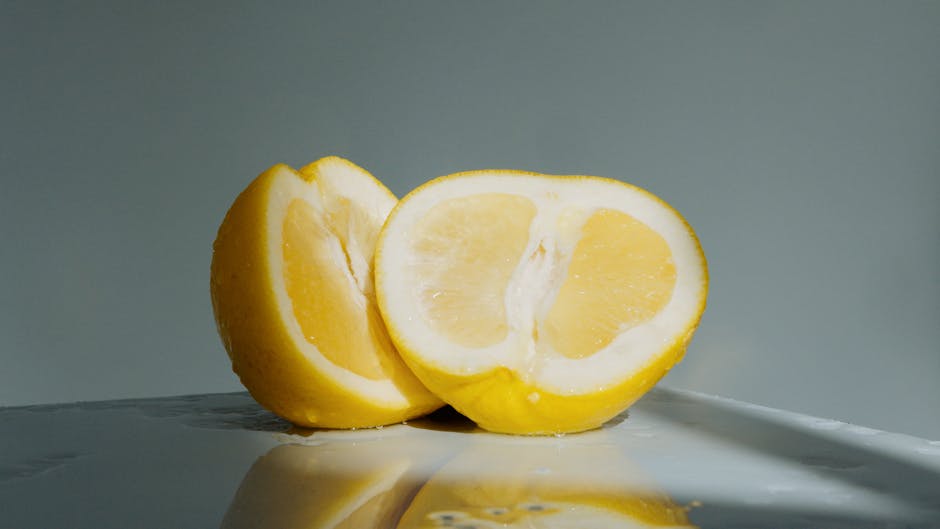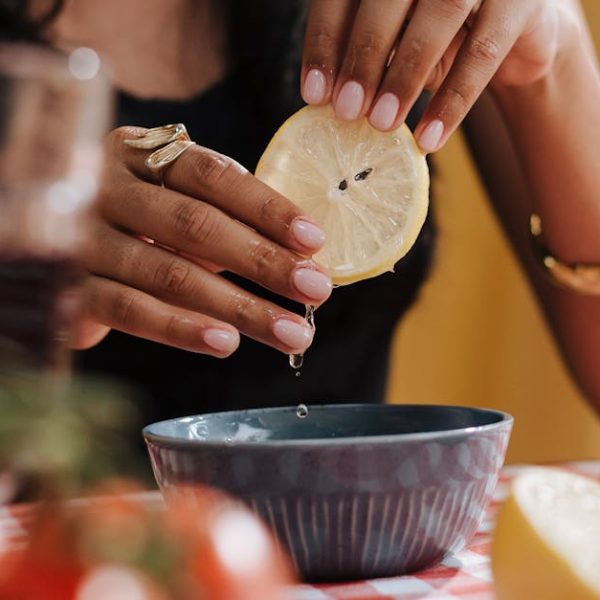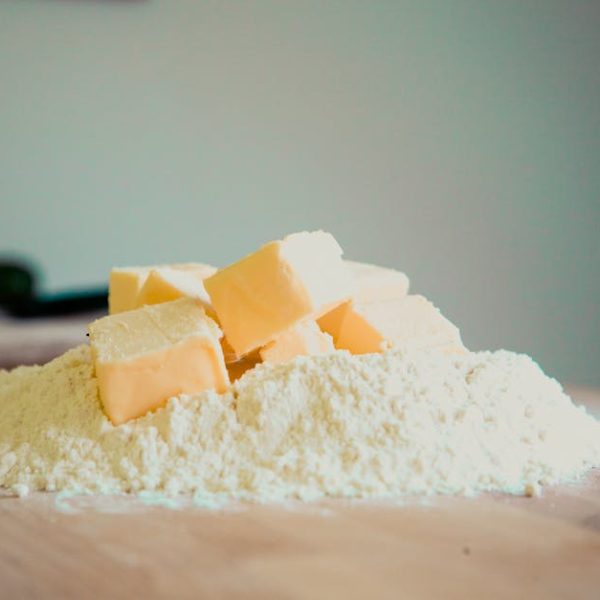Refrigeration: Preserving Lemon Juice in the Fridge
Preserving lemon juice in a fridge is a straightforward method that doesn’t require any fancy processes. When stored in a clean, airtight container, lemon juice can maintain its freshness up to about two weeks. One primary advantage of using a glass container over plastic ones is that it can better maintain the freshness over time.
Best Practices
- Pour your fresh lemon juice immediately into a clean, airtight container.
- Put the container in the fridge without delay after extraction, as warmth promotes the activation of bacteria.
- To prolong freshness, whenever you’re using the juice, promptly return the container to the refrigerator.
Each method, however, has its pros and cons. The pro of refrigeration is its simplicity and convenience. You just pour the juice into a container and put it into the fridge. There’s no need for any special tools or procedural knowledge. The downside, however, is that refrigeration is considered a short-term preservation method. The maximum shelf-life of refrigerated lemon juice is only about two weeks.
Freezing: Keeping Lemon Juice Fresh for Months
If you’re looking for a method to preserve your lemon juice for a longer time than what refrigeration offers, then freezing is the effective method you need. When frozen correctly, you can get fresh-tasting lemon juice even several months after extraction. Some suitable containers for freezing lemon juice are ice cube trays.
❗Pro Tips
- Pour your freshly squeezed lemon juice into an ice cube tray to make portion control easy during future use.
- After the juice is fully frozen, transfer the lemon juice cubes into an airtight freezer bag for optimal storage conditions.
When comparing refrigeration and freezing methods, both work well for preserving lemon juice. However, freezing offers a significantly extended shelf-life compared to refrigeration, enabling you to preserve lemon juice for several months. The only downside to this method is that it might slightly alter the taste of the juice due to the freezing process.
Canning: High-Temperature Preservation
For those looking into long-term preservation methods, canning is the technique of choice. Canning involves employing high temperatures to kill bacteria, yeasts, and molds that might be lurking in your lemon juice. A properly canned lemon juice can last up to a year if kept in a cool, dark place away from sunlight.
✅Checklist
- Clean all equipment and containers thoroughly.
- Only use high-quality canning jars.
- Boil the lemon juice before canning it to eliminate any potential bacteria.
Canning indeed offers an extended shelf-life; however, like the previous method, it might slightly change the fresh taste of your juice. Additionally, this technique would need canning jars and a canner pot, which might not be readily available in your kitchen.
Adding Preservatives: Natural Ways to Enhance Shelf-Life
Another method to help extend the duration of your lemon juice’s freshness is by adding natural preservatives. Substances like salt, sugar, and even vinegar can make your juice last much longer by inhibiting bacterial growth.
Best Practices
- Use a sufficient amount of salt, sugar, or vinegar–too little might not suffice to prevent bacterial growth, but too much can overpower the taste of the juice.
- Mix the juice and the preservative thoroughly – a faulty mix might result in uneven distribution of the preservative, causing one part to spoil while the other remains preserved.
In comparing preservation using preservatives and those without, the addition of preservatives may alter the juice’s taste significantly. For this reason, if you prefer your lemon juice to taste exactly as fresh, methods that use no preservatives, such as refrigeration or freezing, might be more of your liking.
Vacuum Sealing: Elimination of Air for Preservation
Vacuum sealing is becoming a popular method of preserving food lately, and it works fantastically with lemon juice too. By removing air from the storage container, you slow down oxidation and prevent bacteria from spoiling the juice, keeping it fresh for up to a month or even longer when combined with a freezer.
❗Pro Tips
- Use good quality, BPA-free plastic bags to keep the juice healthy for consumption.
- If you own a freezer, keep the vacuumed bags in it to maximize the juice’s longevity.
The main advantage of vacuum sealing is that it can retain the original taste of your juice while extending its shelf-life. The downside, however, is that this method requires a vacuum sealing machine and enough storage space, especially if you plan to freeze your sealed bags of lemon juice.
Refrigeration: Preserving Lemon Juice in the Fridge
If you want to store your lemon juice for a shorter time, refrigeration is a great way to go about it. Keeping your lemon juice in the fridge can allow it to maintain its freshness for up to two weeks. This is perfect for those of us who use lemon juice frequently in cooking, drinks, or even beauty routines.
For optimal results, I recommend using a covered glass container instead of plastic. Glass containers don’t absorb smells and flavors, and can help maintain the freshness of your lemon juice for longer.
Best Practices
- Remember to pour your freshly squeezed juice into a clean, airtight container.
- Try to minimize the number of times you take your juice container out of the fridge. Each time you expose it to room temperature, you also expose it to possible bacterial growth.
- Lastly, be sure to refrigerate your juice immediately after extraction.
Pros and Cons
- Pro: This method is simple and easy, and doesn’t require any special equipment.
- Con: However, it is a short-term preservation technique, which only keeps the juice fresh for up to two weeks.
Freezing: Keeping Lemon Juice Fresh for Months
Freezing is an excellent method for those of us looking to store our lemon juice for longer periods. By freezing your juice, you can preserve all that tangy goodness for several months at a time. Ice cube trays are a great container choice for this method, as they allow portioning much more manageable.
Pro Tips
- Pour your lemon juice into an ice cube tray for easy portion control. Once they’re frozen, you can just use a cube each time you need some juice.
- After freezing, transfer your lemon juice cubes into an airtight freezer bag. This will help maintain optimal storage conditions and protect them from other flavors in your freezer.
Comparisons (Freezing vs Refrigeration)
- Freezing extends your lemon juice’s shelf life far more than refrigeration. However, the freezing process may slightly alter the taste, making it less fresh.
Canning: High-Temperature Preservation
For an even longer shelf-life, you can use the canning method. Canning uses high temperatures to kill any present bacteria or other microorganisms in your lemon juice. If stored in a cool and dark place, canned lemon juice can last up to a year.
Checklist
- Start by ensuring all your canning equipment is clean and sterilized, including your canning jars.
- Before canning, it is essential to boil your juice briefly. This process is what kills bacteria, ensuring a longer shelf life for your juice.
Pros and Cons
- Pro: Canning gives your lemon juice an extended shelf life, allowing you to store it up to a year.
- Con: Sadly, canning involves heat, which can change the fresh taste of your juice. Also, this method requires canning jars and a large pot or a pressure canner.
Adding Preservatives: Natural Ways to Enhance Shelf-Life
Natural preservatives like salt or sugar, can extend the shelf-life of your lemon juice. They work by inhibiting bacterial growth, preventing the juice from spoiling.
Best Practices
- Make sure to add enough salt or sugar to ensure effectiveness. A light sprinkle won’t cut it.
- After adding the preservative, mix your juice thoroughly to make sure the preservative is evenly distributed.
Comparisons (Preservatives vs Non-Preservative Methods)
- While preservatives can extend the life of your juice, they also alter its natural flavor. This may not be ideal for those of us who love the pure, tart flavor of fresh lemon juice.
Vacuum Sealing: Elimination of Air for Preservation
Vacuum sealing is a method that extracts air from your juice container, slowing down oxidation and helping the juice stay fresh. Vacuum-sealed lemon juice can retain its freshness for up to a month.
Pro Tips
- Use BPA-free plastic bags for vacuum sealing. Not only are these safer, but they also provide a high-quality seal.
- Once your juice is vacuum-sealed, store the bags in the freezer to extend the shelf-life even further.
Pros and Cons
- Pro: Vacuum sealing keeps your lemon juice fresh and full of flavor, even after a month.
- Con: On the downside, vacuum sealing requires special equipment, and you’ll need enough storage space for the sealed bags.
Key Takeaway:
- Refrigeration is an easy, simple method for preserving lemon juice, keeping it fresh for up to two weeks.
- Freezing the lemon juice extends the shelf-life for several months and enables portion control using ice cube trays.
- Canning allows a significantly extended shelf-life of the lemon juice, lasting up to a year but requires special equipment.
- Adding natural preservatives like salt or sugar can help detain bacterial growth and extend the juice’s shelf-life, yet may alter its taste.
- Vacuum sealing, an advanced but efficient technique, can effectively prolong the freshness of lemon juice up to a month.
Brighten your life with the zest and vitality of preserved lemon juice! Now that you are equipped with several methods of preserving lemon juice, you can have fresh lemon juice at your fingertips whenever you need it. Enjoy the freshness and reap the benefits of this vibrant citrus fruit longer.
FAQs
Q: Can I mix different methods like refrigeration and vacuum sealing?
A: Yes, certainly. Combining methods like refrigerating the vacuum-sealed bag of lemon juice can often yield better results and longer shelf-life.
Q: How can I tell if my preserved lemon juice has gone bad?
A: Signs of spoiled lemon juice include a sour smell, a change in color, or the development of mold. If you notice these signs, discard the juice immediately.
Q: Can I freeze the whole lemon instead of just the juice?
A: Yes, you can. Freezing the whole lemon isn’t as space-efficient as freezing the juice but can be a workable option if you also want to preserve the pulp and rind.
Q: Does the type of lemons used affect the preservation process?
A: The preservation process remains the same regardless of the type of lemons; however, the flavor or sweetness of your preserved juice may vary depending on the variety of lemons used.
Q: Is it safe to consume preserved lemon juice directly?
A: Yes, it is generally safe. However, ensure the juice has been preserved correctly and stored in hygienic conditions. Also, in the case of juices preserved using preservatives, it’s always better to dilute them before consumption.
Don’t forget to share this useful article with your friends and family. Explore more posts on our website to stay ahead in your home-cooking game!






